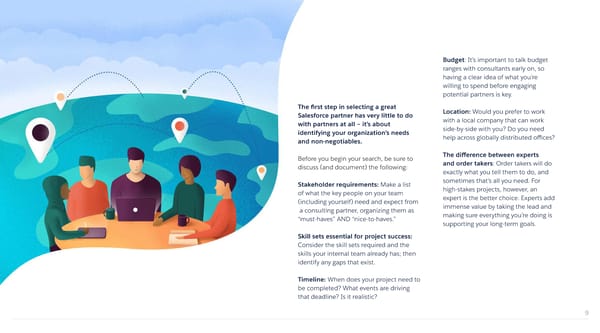Budget : It’s important to talk budget ranges with consultants early on, so having a clear idea of what you’re willing to spend before engaging potential partners is key. Location: Would you prefer to work with a local company that can work side-by-side with you? Do you need help across globally distributed offices? The difference between experts and order takers : Order takers will do exactly what you tell them to do, and sometimes that’s all you need. For high-stakes projects, however, an expert is the better choice. Experts add immense value by taking the lead and making sure everything you’re doing is supporting your long-term goals. The first step in selecting a great Salesforce partner has very little to do with partners at all – it’s about identifying your organization’s needs and non-negotiables. Before you begin your search, be sure to discuss (and document) the following: Stakeholder requirements: Make a list of what the key people on your team (including yourself) need and expect from a consulting partner, organizing them as “must-haves” AND “nice-to-haves.” Skill sets essential for project success: Consider the skill sets required and the skills your internal team already has; then identify any gaps that exist. Timeline: When does your project need to be completed? What events are driving that deadline? Is it realistic? 9
 Partners make it possible Page 8 Page 10
Partners make it possible Page 8 Page 10